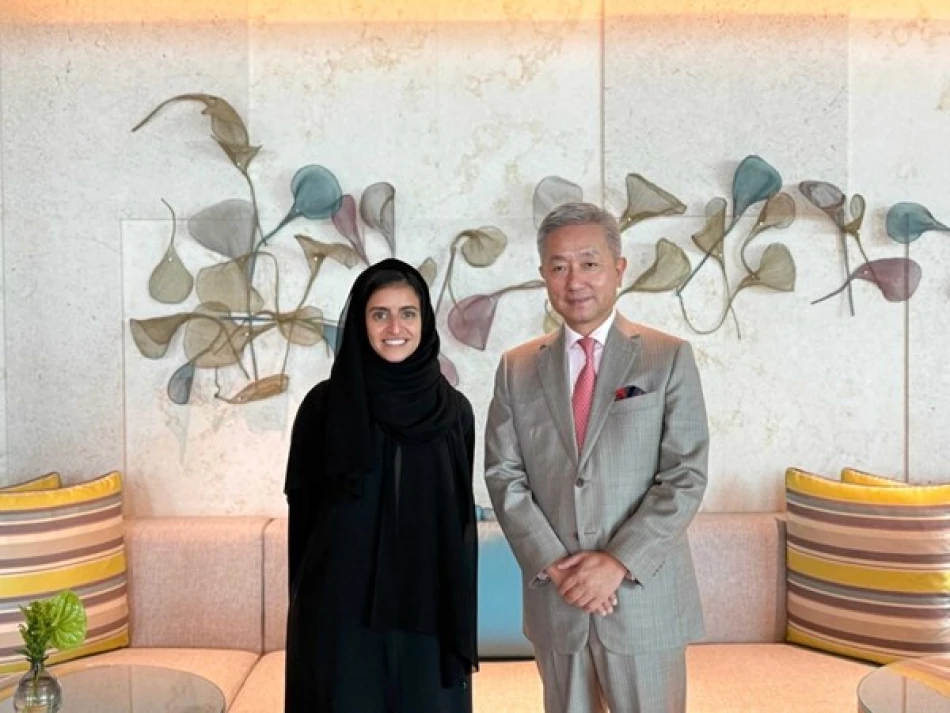
Newly Elected UN Tourism Chief and Chinese Envoy Discuss Collaborative Opportunities
UAE-China Tourism Partnership Signals Strategic Shift as New UN Tourism Chief Takes Charge
The UAE and China are deepening their tourism cooperation through high-level discussions between Sheikha Nasser Al Nuaimi, the newly elected Secretary-General of the UN World Tourism Organization, and China's ambassador to the Emirates. This partnership comes at a pivotal moment as global tourism recovers from pandemic disruptions and nations compete to capture China's massive outbound travel market, worth over $250 billion annually before COVID-19.
Strategic Timing for Tourism Diplomacy
Al Nuaimi's meeting with Chinese Ambassador Chang Yiming in Abu Dhabi represents more than routine diplomatic courtesy. As she prepares to lead the UN tourism body from 2026 to 2029, her early engagement with China signals recognition of the country's outsized influence on global travel patterns. Chinese tourists historically represented the world's largest source of international tourism spending, making Beijing's cooperation essential for any meaningful tourism recovery.
The discussions focused on sustainable and cultural tourism projects, reflecting a broader industry shift away from mass tourism toward more targeted, high-value experiences. This approach aligns with both the UAE's Vision 2071 sustainability goals and China's emphasis on quality over quantity in its Belt and Road Initiative tourism components.
Economic Implications Beyond Tourism
Workforce Development and Innovation
The partnership emphasizes global training programs to enhance tourism workforce readiness—a critical need as the industry faces widespread labor shortages. China's experience in rapidly scaling hospitality infrastructure, demonstrated during its pre-pandemic tourism boom, offers valuable lessons for emerging destinations.
Both nations are positioning themselves to benefit from tourism's digital transformation. The UAE's smart city initiatives in Dubai and Abu Dhabi complement China's leadership in travel technology, from mobile payments to AI-powered customer service.
Rural Development Through Tourism
The emphasis on rural community development through sustainable tourism reflects lessons learned from China's poverty alleviation campaigns, which successfully used tourism to revitalize remote areas. The UAE, despite its urban focus, has been developing cultural and adventure tourism in its northern emirates and desert regions.
Geopolitical Context and Market Access
This cooperation occurs against a backdrop of shifting global alliances and trade relationships. While Western nations have imposed various restrictions on Chinese technology and investment, the UAE continues positioning itself as a neutral hub for East-West business relations. Tourism serves as a relatively non-controversial avenue for maintaining strong ties with China while avoiding the complexities affecting other sectors.
The partnership also addresses practical challenges in tourism transportation between different countries and regions. China's experience with high-speed rail networks and the UAE's position as a global aviation hub create opportunities for innovative travel corridors that could reshape regional tourism flows.
Competitive Positioning in Global Tourism
Singapore and Hong Kong have traditionally served as bridges between Chinese tourists and international destinations. The UAE's deeper institutional cooperation through the UN tourism framework represents an attempt to capture a larger share of this market through official channels rather than purely commercial relationships.
This approach may prove more resilient than purely market-driven tourism relationships, which can fluctuate based on economic conditions or diplomatic tensions. By embedding cooperation within UN frameworks, both countries create institutional momentum that transcends short-term political or economic volatility.
Long-term Implications for Global Tourism Governance
Al Nuaimi's leadership of the UN tourism organization, combined with stronger UAE-China cooperation, could influence global tourism policies toward greater emphasis on cultural exchange and youth empowerment. This represents a shift from tourism as primarily an economic activity toward viewing it as a tool for international understanding and sustainable development.
The partnership's success will likely be measured not just in tourist arrivals or revenue, but in its ability to create lasting institutional frameworks that survive changes in leadership and economic cycles. For investors and tourism operators, this suggests opportunities in sustainable tourism infrastructure, cultural preservation projects, and educational initiatives that align with both nations' long-term strategic objectives.
Most Viewed News

 Layla Al Mansoori
Layla Al Mansoori






